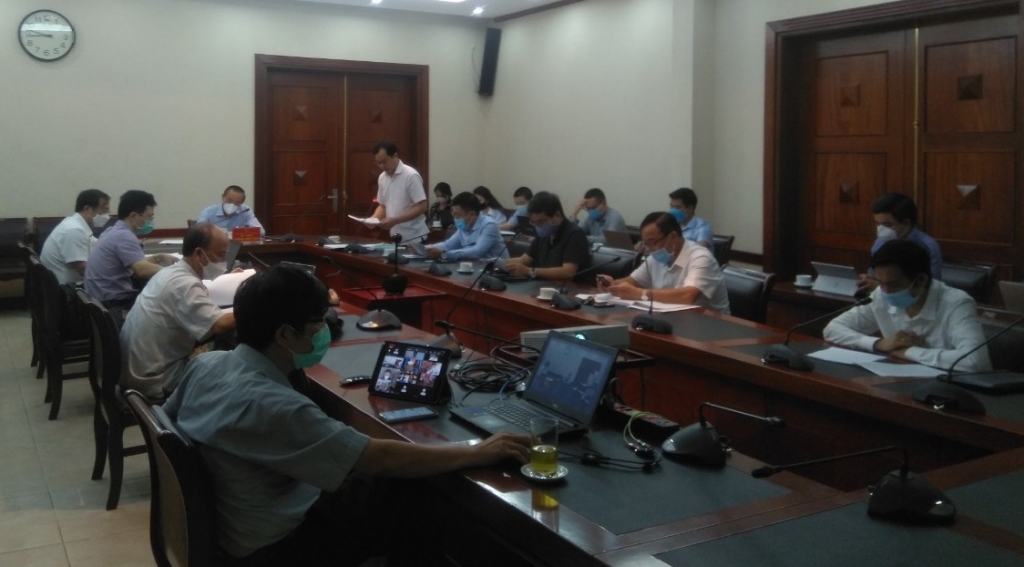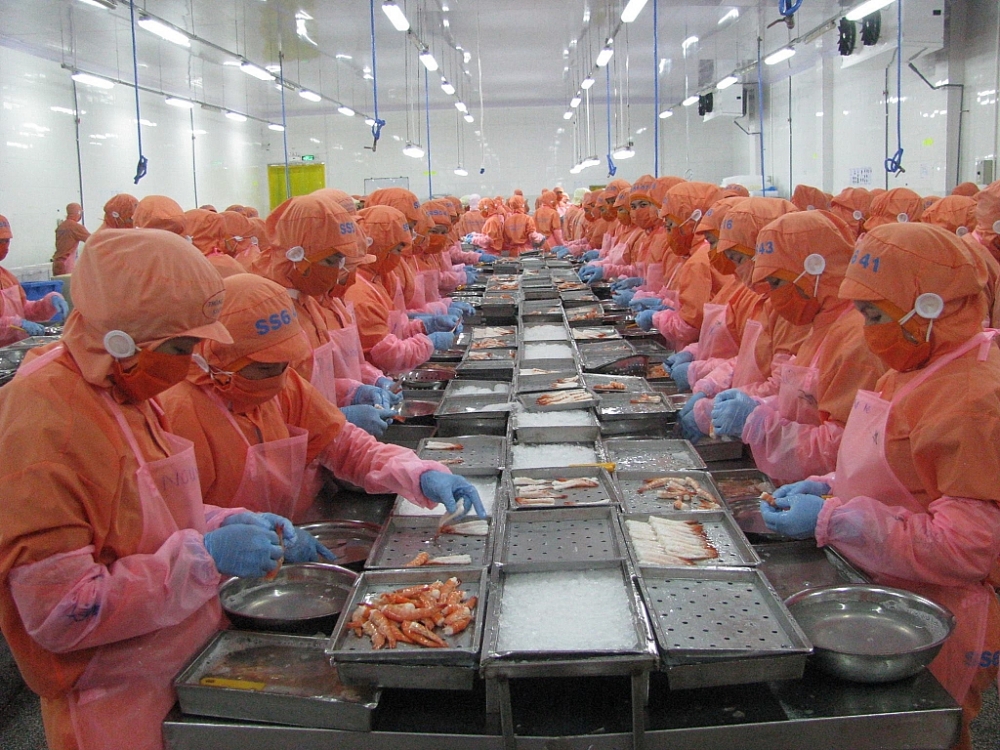Seafood industry proposes policies to support the entire production chain
The risk of breaking the agricultural, forestry and fishery production chain and the lack of raw materials for processing and exporting factories in the last months of the year is a big challenge for the seafood industry. Many ministries, sectors, localities and businesses have suggested that the Government develop policies to support the entire seafood chain.

Overview of the conference of the Ministry of Agriculture and Rural Development. Photo: Duc Thinh
Four pressures at the same time
Speaking at an online conference on seafood production and consumption in the last months of 2021 and solutions to proactively produce seafood taking place on September 4, 2021, Deputy Minister of Agriculture and Rural Development Phung Duc Tien said this year the target of seafood export is US$8.8 billion.
However, the fourth wave of the Covid-19 pandemic seriously affected production and seafood. Up to now, there have been F0 patients at 17 fishing ports.
Mr. Tran Dinh Luan, Director of the General Department of Fisheries (Ministry of Agriculture and Rural Development), added that 17 fishing ports are temporarily closed.
Notably, the loading and unloading, trading, and especially the transportation of aquatic products to other provinces faced difficulties, leading to slow consumption of caught fish.
Prices of aquatic products decreased by 15-20% over the same period last year.
A representative of the business community, Mr. Nguyen Hoai Nam, Deputy General Secretary of the Vietnam Association of Seafood Exporters and Producers (VASEP), said that currently the whole seafood industry is facing four pressures at the same time.
The first is the labor issue. Concentrated production factories have hundreds or thousands of workers. Large enterprises have about 5,000-7,000 workers. When the vaccine source was not sufficient, 70% of factories had to stop production to meet the priority target of fighting the pandemic. Only 30% of factories can maintain production activities thanks to the application of the "3 on-site" model.
Out of 30% of these factories, only about 20-40% of workers are on site. This causes the factory to reduce capacity, leading to the business not having enough goods to supply to customers according to the signed contract. At the same time, it is not possible to purchase raw materials.
The second difficulty comes from the customers. Nineteen southern provinces and cities are under social distancing according to Directive 16 from mid-August, putting businesses under great pressure.
“Customers will have to adjust to cut or squeeze prices because their total costs increase, we don't have enough goods. This week is a very tense time when communicating with customers," said Mr. Nam.
The third difficulty mentioned by Deputy General Secretary is raw materials. In the processing stage, many raw materials such as packaging, nylon, vacuum machines, etc., all factories need supplies from Ho Chi Minh City. If this limit ation is not removed, it will mean the enterprise are unable to maintain production.
The last difficulty Mr. Nam said that when capacity is reduced, workers are reduced, and raw materials are lacking, so the total cost of the enterprise increases.
Employees quit their jobs, but businesses still have to pay their wages. With workers participating in the “3 on the spot” model, enterprises have to pay more than 50% of the usual costs; because of a part from salary, there is additional money, expenses for food, material conditions. Production costs per unit of the product is very high.
A policy to support the whole seafood chain
Facing the above difficulties, Vasep proposed to the leaders of the Ministry of Agriculture and Rural Development to support the localities, to soon conduct the first vaccination for the fisheries sector; at the same time, helping businesses build and work with localities when enterprises submit production plans in the context of partial or total isolation.

Enterprises in the whole seafood industry are facing a lot of difficulties, seriously affecting the delivery schedule. Photo: Nguyen Thanh
From a local perspective, Mr. Nguyen Van Buoi, Deputy Director of Ben Tre Department of Agriculture and Rural Development, said that with the current situation, the Ministry of Agriculture and Rural Development should propose the Government to reduce electricity prices for farmers because this fee in shrimp farming is very high.
The desired reduction in electricity prices is 15-20% for a period of 6 months from September 2021.
Some other localities have the same recommendations on the issue of opening up capital.
Accordingly, the Government should have policies to support seafood processing enterprises in terms of interest rates, provided that these enterprises have to build chains of links with farming and fishing areas.
As for vaccines, the proposal of the Deputy Director of the Department of Agriculture and Rural Development of Ben Tre province is also a common desire of many localities. “Ben Tre places a high priority on vaccination for the agricultural supply chain and aquaculture. However, the source of vaccines from the Ministry of Health to the provinces is currently very limit ed and the locality wants to increase the source of vaccines in the near future," said Mr. Buoi.
Looking at the overall difficulties facing the whole fisheries sector, Mr. Tran Dinh Luan suggested that the Ministry of Agriculture and Rural Development propose to the Prime Minister to direct relevant ministries, branches and localities to review and adopt policies. support the entire production chain of aquaculture and fishing, especially people directly produce products (in terms of taxes, electricity and capital).
“For the State Bank, it is recommended to freeze and delay debt for loans for businesses and people involved in activities in the seafood chain affected by Covid-19; at the same time, provide more credit with reasonable interest rates for people and businesses to reinvest in production recovery," said the Director General of the Directorate of Fisheries.








